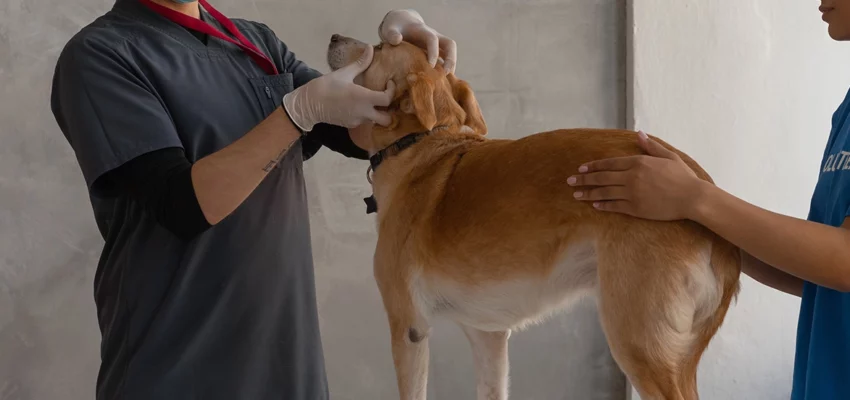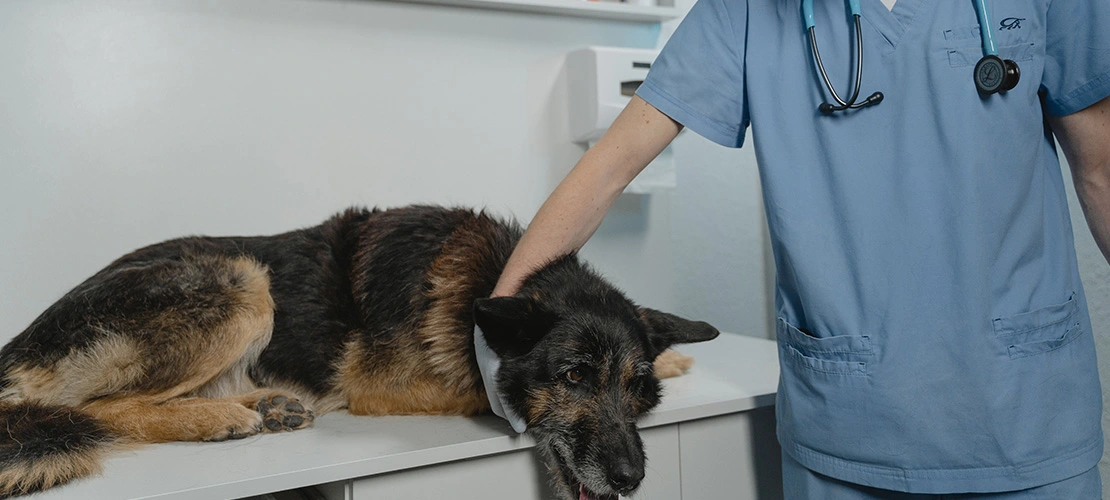
What Every Pet Owner Should Know About Hepatitis C Diagnosis in Dogs
Welcome to our blog! If you’re a pet owner in Jacksonville, it’s crucial to stay informed about Hepatitis C diagnosis in dogs. Hepatitis C, a viral infection that primarily affects humans, can also be transmitted to our beloved furry friends. In this article, Animal Hospital Jacksonville experts will discuss the importance of early diagnosis and the veterinary options available at our trusted animal hospital in Jacksonville. Don’t wait, arm yourself with knowledge and protect your dog’s health today.
Hepatitis C In Dogs
Hepatitis C is a viral infection that primarily affects humans, but can also infect other animals, including dogs. Although it is less common in dogs compared to humans, it is still important for dog owners to be aware of this disease.
Hepatitis C in dogs is caused by the hepatitis C virus (HCV), which is known to have different strains or genotypes. It is typically transmitted through contact with infected blood or bodily fluids, such as through contaminated needles, blood transfusions, or exposure to an infected mother during birth says Vets In Jacksonville Fl. In rare cases, transmission through sexual contact or close contact with infected individuals can also occur.
Similar to humans, dogs with hepatitis C may experience a variety of symptoms, including fatigue, loss of appetite, vomiting, jaundice (yellowing of the skin or eyes), abdominal pain, and increased thirst and urination. However, it is important to note that not all infected dogs will exhibit symptoms, and some may only have mild or non-specific clinical signs.
Symptoms Of Hepatitis C In Dogs

Hepatitis C is primarily a human disease, and its occurrence in dogs is relatively rare. However, if a dog does become infected with the hepatitis C virus (HCV), it may exhibit various symptoms. It is important to note that not all infected dogs will show signs of illness, and the severity of symptoms can vary from mild to severe. Here are some potential symptoms of hepatitis C in dogs:
- Fatigue: Infected dogs may appear lethargic or have a decreased energy level.
- Loss of appetite: Hepatitis C can cause a loss of appetite in dogs, leading to a decreased interest in food and weight loss.
- Vomiting: Some infected dogs may experience episodes of vomiting, which can be intermittent or persistent.
- Jaundice: Jaundice, characterized by the yellowing of the skin, gums, and whites of the eyes, may occur in severe cases of hepatitis C in dogs. It is caused by the buildup of bilirubin, a yellow pigment that is normally processed by the liver.
- Abdominal Pain: Dogs with hepatitis C may exhibit signs of abdominal discomfort, such as restlessness, pacing, or sensitivity when their abdomen is touched.
- Increased thirst and urination: Infected dogs may drink more water than usual and urinate more frequently. This can be attributed to liver dysfunction and metabolic changes.
It is important to remember that these symptoms are not specific to hepatitis C and can also be caused by other underlying health conditions. According to Veterinarian Jacksonville, If you suspect that your dog may be infected with hepatitis C or exhibiting any of these symptoms, it is crucial to seek veterinary attention for a proper diagnosis and appropriate treatment.
Diagnosing Hepatitis C In Dogs

Diagnosing hepatitis C in dogs can be a complex process that involves a combination of clinical signs, laboratory tests, and sometimes imaging or biopsies. As hepatitis C is primarily a human disease, diagnosing it in dogs requires careful consideration and ruling out other potential causes of liver disease. Here are some common diagnostic methods suggested by Vets In Jacksonville for diagnosing hepatitis C in dogs:
- Medical history and physical examination: The veterinarian will start by taking a detailed medical history from the dog owner, including any known exposure to HCV or risk factors. A thorough physical examination will also be conducted to assess the dog’s overall health and look for any signs of liver disease, such as jaundice or an enlarged liver.
- Blood tests: Blood tests are crucial in diagnosing hepatitis C in dogs. These tests can detect the presence of antibodies against HCV, which indicate exposure or infection, as well as viral genetic material (HCV RNA), which indicates active infection. Other blood tests may be performed to evaluate liver function, including liver enzyme levels (ALT, AST), bilirubin levels, and clotting factors.
- Imaging: In some cases, imaging techniques such as ultrasound or radiography may be used to evaluate the liver’s structure and detect any abnormalities. These imaging techniques can help assess the liver’s size, shape, and texture, aiding in the diagnosis and assessment of liver damage or inflammation.
- Liver biopsy: A liver biopsy may be necessary to confirm the diagnosis of hepatitis C in dogs. During a biopsy, a small sample of liver tissue is taken using a needle or through a surgical procedure. The tissue sample is then examined under a microscope to assess the extent of liver damage, inflammation, and the presence of HCV.
It is crucial to remember that diagnosing hepatitis C in dogs can be challenging, and not all infected dogs may show clinical signs or test positive for HCV. Other causes of liver disease, such as infections, toxins, or autoimmune disorders, should also be considered and investigated.
Treatment Options For Dogs With Hepatitis C

Currently, there is no specific antiviral treatment available for dogs with hepatitis C. It is important to note that hepatitis C is primarily a human disease, and while dogs can become infected, they generally do not develop severe liver disease like humans do. However, supportive care and management of symptoms are essential for providing relief and maintaining the dog’s overall health. Here are some treatment options and supportive measures that may be considered for dogs with hepatitis C:
- Supportive Therapy: The primary focus of treatment for dogs with hepatitis C is supporting liver function and managing symptoms. This may involve medications aimed at improving liver health, such as antioxidants and hepatoprotectants. Your veterinarian may prescribe medications to help manage any accompanying symptoms, such as anti-nausea drugs for vomiting or pain medications.
- Proper Nutrition: Diet plays a crucial role in supporting the liver function of dogs with hepatitis C. Your veterinarian may recommend a special diet that is gentle on the liver and provides necessary nutrients. This may include high-quality proteins, easily digestible carbohydrates, and essential fatty acids. It is important to follow the dietary recommendations provided by your veterinarian.
- Monitoring And Follow-up: Regular monitoring and follow-up visits with the veterinarian are crucial for dogs with hepatitis C. This may include blood tests to assess liver function, monitor for any progression of liver disease, and evaluate response to treatment. Your veterinarian will determine the appropriate frequency of these tests based on your dog’s specific condition.
- Preventive Measures: Since hepatitis C in dogs is primarily transmitted through exposure to infected blood or bodily fluids, taking preventive measures is essential to protect your dog from further exposure. This includes ensuring safe handling and disposal of needles, avoiding exposure to potentially infected dogs or animals, and practicing good hygiene.
It is important to consult with a veterinarian who can provide individualized guidance and recommendations based on your dog’s specific needs and condition. They will be able to tailor the treatment plan and supportive care measures to best manage your dog’s health.
The Role Of Animal Hospital Jacksonville In Treating And Diagnosing Hepatitis C In Dogs
The role of Animal Hospital Jacksonville is crucial when it comes to diagnosing and treating Hepatitis C in dogs. As loving pet owners, it’s important to be aware of how this disease can affect our furry companions. The staff at Animal Hospital Jacksonville are trained and equipped to handle cases of Hepatitis C in dogs, providing the best care possible for our beloved pets. When it comes to diagnosing Hepatitis C in dogs, Animal Hospital Jacksonville utilizes state-of-the-art testing methods. Through blood tests and liver function tests, they can accurately determine if a dog is infected with Hepatitis C. Early detection is key to successful treatment, and the veterinarians at Animal Hospital Jacksonville understand the urgency of prompt diagnosis. Once a diagnosis is confirmed, Animal Hospital Jacksonville offers various treatment options for dogs with Hepatitis C. These can include medications to help boost the immune system and reduce inflammation in the liver. The veterinarians will develop a customized treatment plan based on the individual needs of each dog. Animal Hospital Jacksonville also plays a crucial role in educating pet owners about the prevention of the spread of Hepatitis C. They provide valuable information on the importance of vaccinations, regular check-ups, and maintaining a clean and hygienic environment for our pets. In conclusion, the presence of Animal Hospital Jacksonville in our community is invaluable when it comes to diagnosing and treating Hepatitis C in dogs. By seeking their expertise and guidance, we can take the necessary actions to protect our pets from contracting and spreading this serious disease. Let’s prioritize the health and well-being of our loyal companions, and make sure to consult Animal Hospital Jacksonville for any concerns regarding Hepatitis C in dogs. Together, we can ensure our pets lead healthy and happy lives.
Prevention Of The Spread Of Hepatitis C In Pets
Preventing the spread of hepatitis C in pets is crucial for safeguarding their health and minimizing the risk of transmission to other animals and humans. While hepatitis C is primarily a human disease, it is still important to take preventive measures to protect pets. Here are some key steps for preventing the spread of hepatitis C in pets:
- Avoid exposure to infected blood or bodily fluids: Hepatitis C can be spread through contact with infected blood or bodily fluids. It is important to avoid contact with these potentially infectious materials when handling pets, particularly if you are aware of hepatitis C infection in your household. This includes wearing gloves when cleaning wounds or handling bodily fluids, such as urine or feces.
- Proper handling and disposal of needles: If your pet requires regular injections or medical treatments that involve the use of needles, it is essential to follow safe handling and disposal practices. Use new, sterile needles for each injection and properly dispose of used needles in puncture-proof containers. Avoid reusing needles or sharing them between pets.
- Blood transfusions and medical procedures: If your pet requires a blood transfusion or any invasive medical procedures, ensure that the blood or medical equipment used is obtained from safe and healthy sources. Proper screening and testing of blood products are essential to prevent the transmission of infectious diseases, including hepatitis C.
- Good hygiene practices: Practicing good hygiene is important in preventing the spread of hepatitis C and other infectious diseases. Wash your hands thoroughly with soap and water after handling pets, especially if you have been in contact with their blood or bodily fluids. This is particularly important before handling food or touching your face.
- Vaccination and routine healthcare: Currently, there is no specific vaccine available for preventing hepatitis C in pets. However, it is still essential to maintain routine healthcare for your pet, including vaccinations and regular veterinary check-ups. These preventive measures can help safeguard their overall health and detect any potential health issues early on.
- Education and awareness: Educating yourself about hepatitis C and the precautions to prevent its spread is key to protecting both your pets and yourself. Stay informed about the disease, its transmission routes, and recommended preventive measures. This knowledge will enable you to take appropriate precautions and make well-informed decisions regarding the care of your pets.
Remember, while the risk of hepatitis C transmission from pets to humans is generally considered low, it is still crucial to practice preventive measures to protect both human and animal health. By following these guidelines, you can help minimize the risk of hepatitis C transmission in pets and ensure their well-being.
Conclusion: Taking Action To Protect Your Pet From Contracting And Spreading Hepatitis C
It is crucial for pet owners to take immediate action to protect their beloved animals from contracting and spreading Hepatitis C. By following the necessary preventive measures, you can safeguard your furry friend’s health and well-being. Remember, Hepatitis C can have severe consequences on your pet’s liver and overall quality of life. Therefore, it is of utmost importance to stay vigilant and proactive. To effectively protect your pet, make sure to regularly consult with professionals at Animal Hospital Jacksonville. Their expertise in diagnosing and treating Hepatitis C in dogs is invaluable. Trust their knowledge and experience in administering the most appropriate treatment options for your pet’s condition. In addition to seeking expert assistance, it’s essential to establish a routine of preventive measures. This includes keeping your pet’s living area clean and hygienic. Regularly disinfect toys, bedding, and food/water bowls to eliminate any potential sources of infection. Furthermore, avoid exposing your pet to unsafe environments or potential carriers of Hepatitis C. Lastly, be proactive in ensuring your pet’s vaccinations are up to date. Vaccination is one of the most effective ways to prevent the contraction and spread of Hepatitis C in dogs. Take the time to discuss with your veterinarian the appropriate vaccination schedule for your pet. By taking action now, you can significantly reduce the risk of your pet contracting and spreading Hepatitis C. Remember, your pet’s health is in your hands. Act today to safeguard their well-being and provide them with a long and healthy life.
In conclusion, understanding and taking action to protect your beloved pet from contracting and spreading Hepatitis C is crucial. From recognizing the symptoms and diagnosing the disease to exploring treatment options, our blog has provided valuable information on Hepatitis C in dogs. By partnering with a trusted animal hospital in Jacksonville, you can ensure that your furry friend receives the proper care and treatment they need. Remember, prevention is key. Vaccinations, proper hygiene, and regular check-ups are essential in keeping your pet safe and healthy. So, don’t wait any longer. Take action now to safeguard your pet’s well-being and prevent the spread of Hepatitis C. For more insightful blog posts and expert advice, stay tuned and keep exploring our website. Your pet’s health is our top priority!
If you are a veterinarian looking to improve your online presence, contact YashaaGlobal, A Veterinary SEO Company in Jacksonville, FL. They are a team of experts who can help you achieve your goals.
